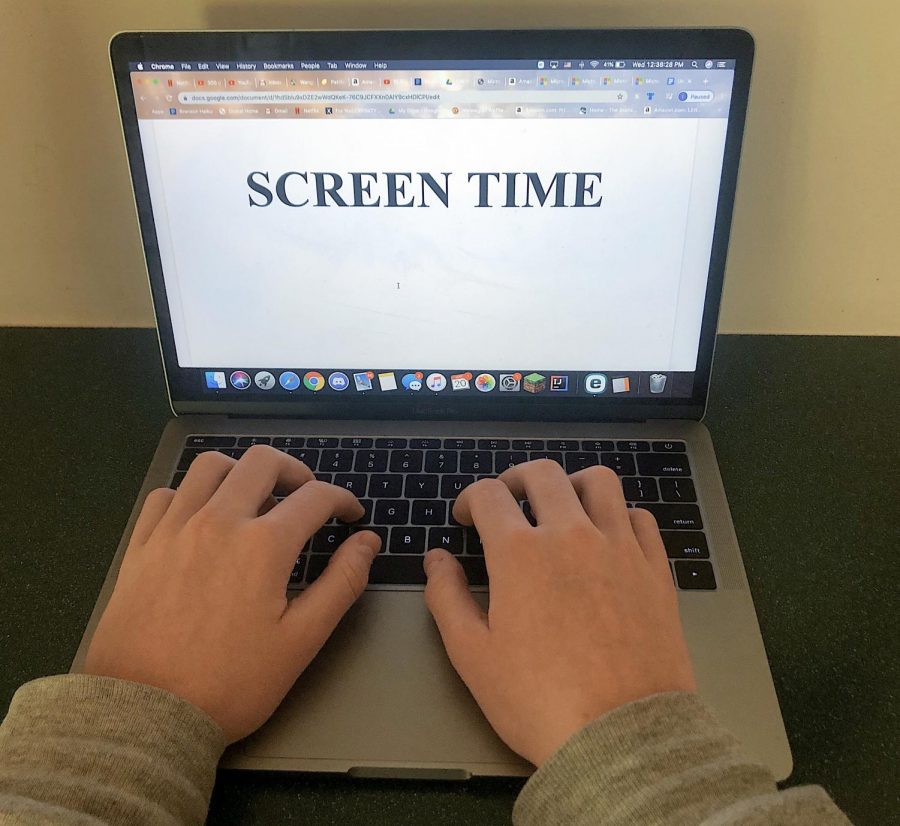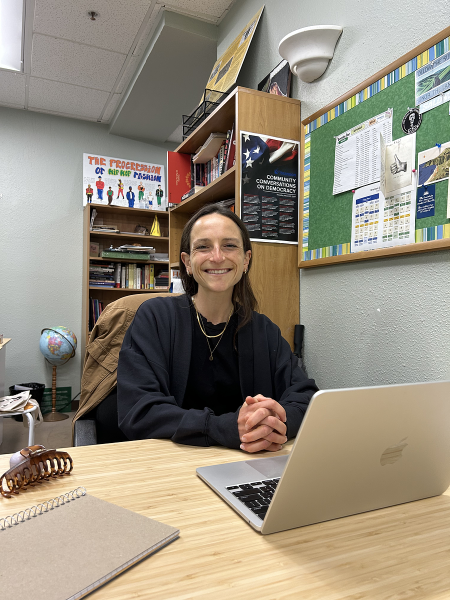Effects of screen time
May 22, 2020
With everything we could possibly need, from finances to social media to entertainment readily available on our phones, tablets, and computers, it seems that screens could solve any problem. And in many cases that is true, with the most notable solution right now being their ability to build a semblance of community.
Zoom and other social media platforms have become our main source of social interaction and a way to make social distancing seem less distant. However, those hours on the screen can build up quickly and people in the Branson community are feeling the effects.
Junior Bliss Green said that she has been spending much more time on screens than usual due to shelter-in-place and distance learning. Outside of Zoom classes she has “a lot more time to do nothing” and has been filling this time by “watching Netflix and listening to music.”
However, Green said that after this much time online, her, “eyes got super tired and sometimes blurry.”
Junior Kelly Napolitana says she felt “equally tired as if I had gone to school. Which is weird cause I don’t move around a lot, I’m sitting at the same desk [all day].”
Green also noticed headaches and a lower attention span, which makes it hard for her to pay attention and remember things learned in class.
These are all symptoms of excess screen use and align with a study done by Bringham and Women’s Hospital. According to its research, the excess use of electronic devices and exposure to blue light, especially before bedtime, causes a decrease in the production of the hormone melatonin. This hormone usually rises in the evening, causing one to feel sleepy. In the study, participants who were exposed to blue light before bed did not experience a rise in melatonin and therefore were less tired before bedtime, but much sleepier and less alert the next morning.
Furthermore, this lack of rise in melatonin causes a shift in the body’s natural circadian rhythm which has a harmful effect on REM sleep cycles that are essential for processing and sorting information into memory. So, exposure to blue light before bed can not only make falling asleep and waking up more difficult, but it can also make it harder to remember things.
However, we might not control our screen time as much as we think. The Clinic for Interactive Media and Internet Disorders at Boston Children’s Hospital treats young people with screen addictions. They say that devices trick you into using them longer by activating the brain’s reward system. Similar to gambling, many games and social media apps give you both hope and frustration which fuel the desire to “make it big,” resulting in excess time spent online.
Both Green and Napolitana indicated a motivation to spend less time on the screen but conceded that their habits were unlikely to change while social distancing remains in place.






